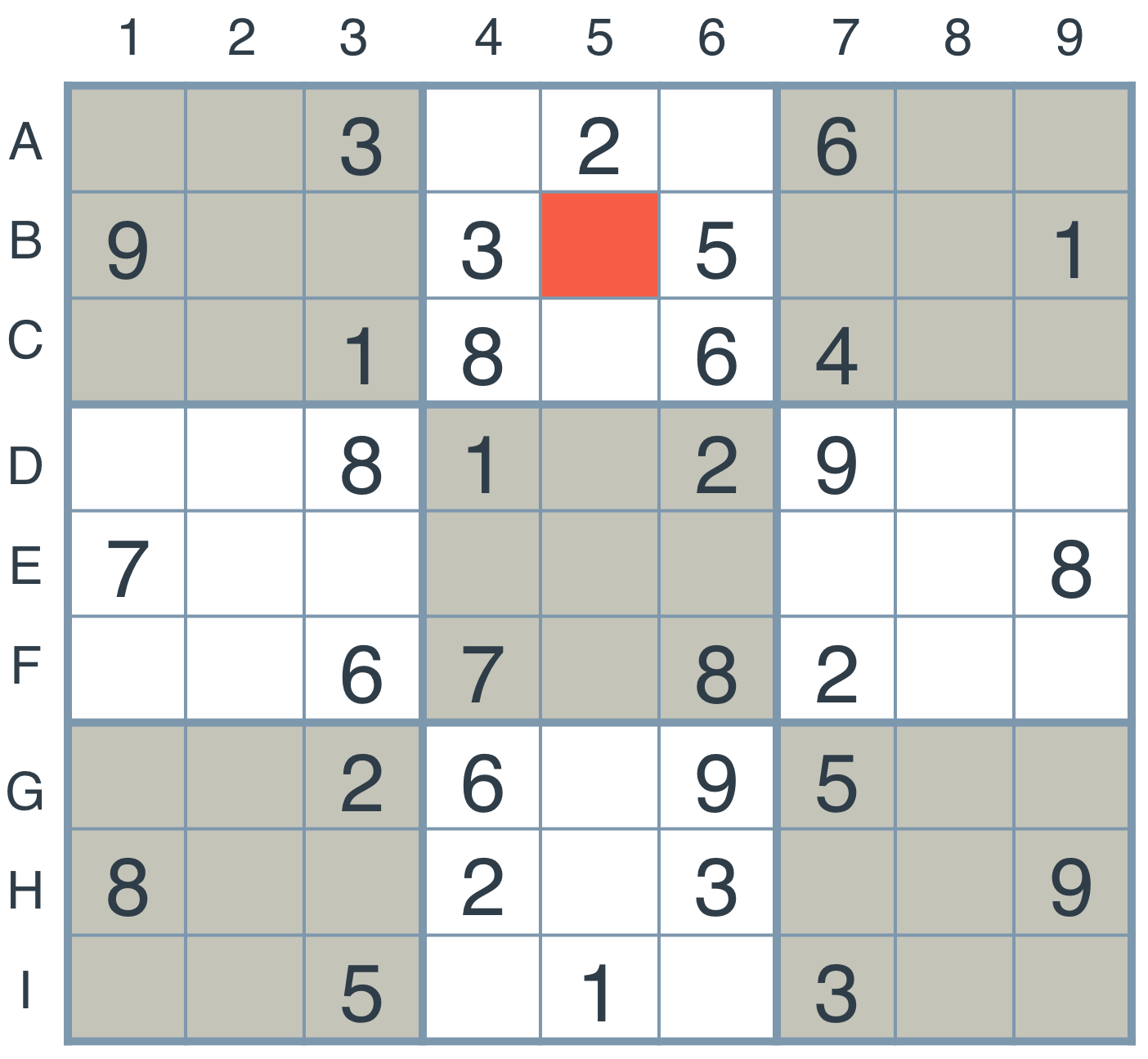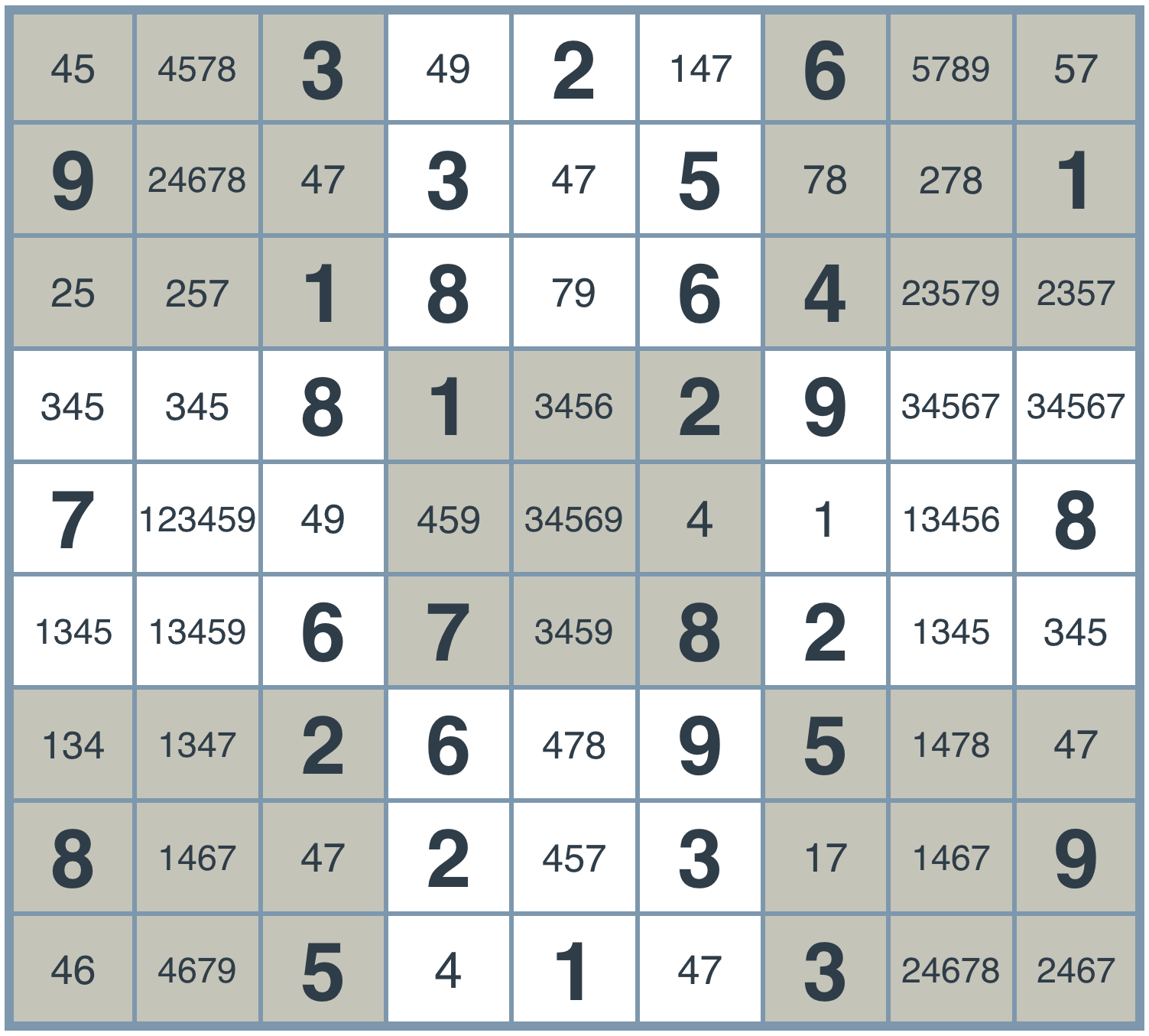05. Strategy 1: Elimination
Insight: We can eliminate possible values for a box by looking at its peers
Ok, time to start solving the Sudoku!
First things first, let's look at a box and analyze the values that could go in there.

Only Choice Quiz
SOLUTION:
- 4
- 7
The possible values are 4 and 7. What did we do to figure this out? Well, all the other values already appear either in the same column, row, or 3x3 square of the highlighted box, so we conclude that they can't be a value for this box. In other words, we used the following strategy.
Strategy 1: Elimination
If a box has a value assigned, then none of the peers of this box can have this value.
Eliminate
Now that we know how to eliminate values, we can take one pass, go over every box that has a value, and eliminate the values that can't appear on the box, based on its peers. Once we do so, the board looks like this (for clarity, we've highlighted the original filled-in boxes in bold lettering):
(Notice that if we take a second pass through the puzzle, we can gain even more information, but this is not necessary for now.)

The possible values for every box.
This seems like something we can code!
Improved grid_values()
As of now, we are recording the puzzles in dictionary form, where the keys are the boxes ('A1', 'A2', ... , 'I9') and the values are either the value for each box (if a value exists) or '.' (if the box has no value assigned yet). What we really want is for each value to represent all the available values for that box. For example, the box in the second row and fifth column above will have key 'B5' and value '47' (because 4 and 7 are the only possible values for it). The starting value for every empty box will thus be '123456789'.
Update the grid_values() function to return '123456789' instead of '.' for empty boxes.
Start Quiz:
User's Answer:
(Note: The answer done by the user is not guaranteed to be correct)
So, from now on, we'll think of the puzzles in this way. Thus, the puzzle in the last section will look like this (in dictionary form):
{
'A1': '123456789',
'A2': '123456789',
'A3': '3',
'A4': '123456789'
'A5': '2',
...
'I9': '123456789'
}Implement eliminate()
Now, let's finish the code for the function eliminate(), which will take as input a puzzle in dictionary form. The function will iterate over all the boxes in the puzzle that only have one value assigned to them, and it will remove this value from every one of its peers.
Start Quiz:
User's Answer:
(Note: The answer done by the user is not guaranteed to be correct)